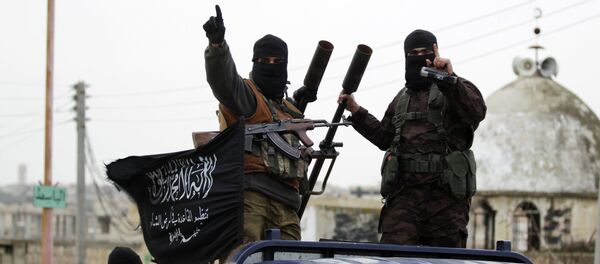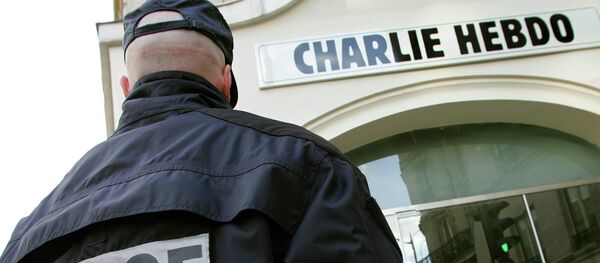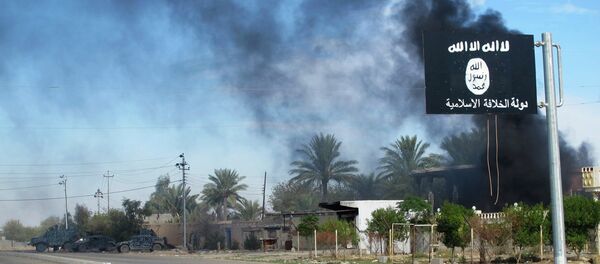The recent terrorist attack in France represents a deeper problem rising across both Western Europe and Russia, coping with the growing number of hidden jihadist cells who see this attack as only the dawn of a new wave of international terrorism.
Although it has not been confirmed in mainstream media, both Said and Cherif Kouachi each have their own relationships to various jihadist groups.
The eldest brother, Said Kouachi trained with al-Qaeda in the Arabian Peninsula (AQAP) in Yemen. Information from the French Intelligence agency shows that Said Kouachi had travelled to Yemen as late as 2011 to train with the al-Qaeda affiliate there.
The Kouachi Brothers are just two of thousands of European fighters which have begun to join the ranks of radical Sunni Jihadist groups in Syria, and as terrorist cells begin to grow all over Europe; fears are starting to run high that elite jihadists trained in warfare abroad will begin to stage attacks at home.
Although we have yet to determine how Kouachi funded his airfare to Syria, and how the brothers paid for the AK-47’s used in the attack (which cost $1,200 to $1,800 on France’s black market), we have access to insider information which can serve as a preview to the typical recruiting processes within al-Qaeda.
Al-Qaeda’s Recruitment Process
A jihadist coming from Europe will need an average of $3,000 to $4,000 to reach Syria. His coordinator at his local Mosque can assist him through “Tajheez al-Ghazi System” to gather the necessary funds on his behalf.
He will then be instructed to book a ticket either to Istanbul or Antalya, Turkey. These points of arrival are chosen because they are typical Turkish tourist destinations and hence easily covered up by secondary agendas.
Upon his arrival in Turkey, he will be told to go to a confidential mosque in the Zeytin Burno in Istanbul where he is supposed to ask for certain individuals. Once he meets these people, whom he will only know under their alias name, he will inform them that the webmasters of al-Qaeda recruitment pages instructed him to establish contact.
Before sending the new recruit closer to the Turkish-Syrian border, that contact will question his seriousness of joining Jihad. In both cases, no matter if sent by a Webmaster online or through a contact within his community at home, their way from Turkey into Syria will be the same. They will then get in touch with the local coordinator there, who will then drive them closer to the Turkish-Syrian border before they cross into Syria by foot.
Once inside Syria, Idlib is the border town where most new recruits arrive. Idlib hosts several safe houses that belong to the various radical Jihadist groups. Once they have chosen a Jihadist group they will be questioned for an hour about their motivation to join.
Al-Qaeda’s Interview Process
The person in charge of the interview is called “the first line of defense.” It is within the interviewer’s discretion to determine the suitability of the new recruit and hence to ensure that no infiltrators are taken abroad.
Among the questions every new recruit will be asked the following:
• Nationality and Origin
• Reasons to join Jihad in Syria
• Information about his Coordinator / Facilitator
• Whether he already knows members of the group
• Questions determining the level of knowledge of Islam
• In case of joining Islamic State (IS) he will be asked to pledge allegiance to its leader al-Baghdadi
If a candidate raises suspicions about his decision to join Jihad at first, he will be questioned on his willingness to make himself available for a suicide mission. Likewise, anyone who is able to memorize and recite the Quran will pass the interview immediately.
According to one of my contacts, a common answer among new recruits is that Syria is considered the “heaven market” to which they would like to “sell their lives.”
Following a successful interview, recruits will be asked to submit three items to their Jihad group’s safe house: their passport, their last will, and any remaining cash or belongings not suitable on the battlefield.
All of the belongings of the recruit are kept in an envelope that has a specific number assigned to it. The same number corresponds to a picture ID that includes a picture taken from the recruit upon his arrival as well as his chosen alias name.
The final steps include sending the new Jihadists to various locations in Syria such as Aleppo, Damascus, Homs, Der Sur and others. Jihadists are free to change various groups alongside which they fight due to a considerable freedom of movement. Someone, for example, who has trained with Ahrar al-Sham are able to change sides and join IS or Jabhat al-Nusra.
The fact that these radicalized individuals carry Western passports should be a grave concern for European governments. Upon their return, these individuals can spread radicalized views in their home countries, or as in France, carry out terrorist attacks.
And due to the relentless recruitment efforts of Jihadist groups online targeting European citizens specifically, this number will keep rising. Charlie Hedbo’s editor-in-chief Stephane “Charb” Charbonnier was already listed as a future assassination target in al-Qaeda’s 2013 magazine Inspire.
The recent attacks in France are only the beginning of a new era in terrorism that will sweep across the world.
To see al-Qaeda’s upcoming assassination targets for 2015 please refer to our previous article here.







